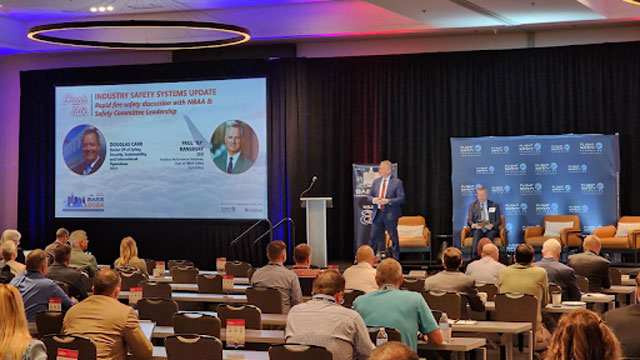The Business Aviation Safety Summit (BASS) 2024, themed “Operational Safety Resiliency – Are You As Good As You Think?”, challenged attendees to critically evaluate their own safety practices and strive for excellence in operational safety. Organized by the Flight Safety Foundation in partnership with the National Business Aviation Association, this critical business safety event brings together industry experts, safety professionals, and aviation leaders each year to discuss the key safety issues business aviators are facing.
Safety Management Systems (SMS) was a key topic of the 2024 event as a tool for accomplishing the theme of the event, operational safety resilience. Underpinning this critical tool as well as most of the topics presented on or discussed, was the importance of safety culture. Operational safety is not a goal and there is no finish line, but instead, it should be a living and breathing process leading to continual refining and improvement.

The Critical Role of Safety Management Systems (SMS)
With the FAA’s recent expansion of mandatory SMS requirements, BASS 2024 spotlighted the importance of these systems in building safety resilience. Some great discussions highlighted the need for a strong safety culture to permeate organizations from the top down in order to ensure successful SMS implementation and its ongoing ability to be the foundation for operational safety and resiliency.
NBAA’s Doug Carr and Paul “BJ” Ransbury, NBAA Safety Committee chairman and APS CEO, discussed the implementation challenges and the critical process of compliance within the 36-month timeline set by the FAA. This rule reflects a significant move towards formalizing safety efforts across business aviation operations.
Emphasis on Proactive Compliance and Safety Culture
Jermaine Cadogan from Convergent Compliance emphasized in his keynote that proactive, disciplined adherence to safety protocols is essential to prevent costly “never events” — preventable events that should never happen — in aviation maintenance. Highlighting the broader applicability to all facets of business aviation, he stressed that deviation from standard procedures could become normalized or tacitly accepted over time, resulting in safety compromises that could lead to disastrous outcomes. Strong safety cultures based on compliance, continual evaluation and improvement help to prevent these drifts in safety and compliance.
In his presentation specific to managing fatigue risk, Dr. Daniel Mollicone pointed out that managing fatigue effectively requires a robust safety culture alongside a just culture. This dual approach ensures that organizations not only provide the necessary education and support but also empower individuals to recognize and report their fitness for duty. This commitment to managing fatigue is pivotal in maintaining operational safety and resilience.
Just as safety culture should permeate every flight department all the time, the topic continued to come up in presentations and discussions throughout the BASS 2024 event, serving as a great reminder to be proactive and maintain a calculated strategy for creating a powerful and consistent culture of safety.
Additional Areas of Focus
In addition to these overarching topics, specific concerns and areas of focus such as mental health, runway excursions, and aviation safety action programs (ASAP) were also discussed in depth.
APS CEO Paul Ransbury also participated along with Capt. John Cox in a panel on flight path management challenges which focused on the importance of manual flying skills in the age of increasing automation. Ransbury highlighted how foundational flying skills are essential for effective flight path management, especially in preventing and recovering from in-flight upsets. (To see more about this topic, you can watch the recent LinkedIn Live webinar: Applied Flightpath Management.)
Business aviation events such as BASS are not only a great opportunity to network and stay connected within the industry, but they also provide a much needed platform for bringing awareness of safety related issues and advancements, fostering a culture of safety and excellence in aviation.




Comments: